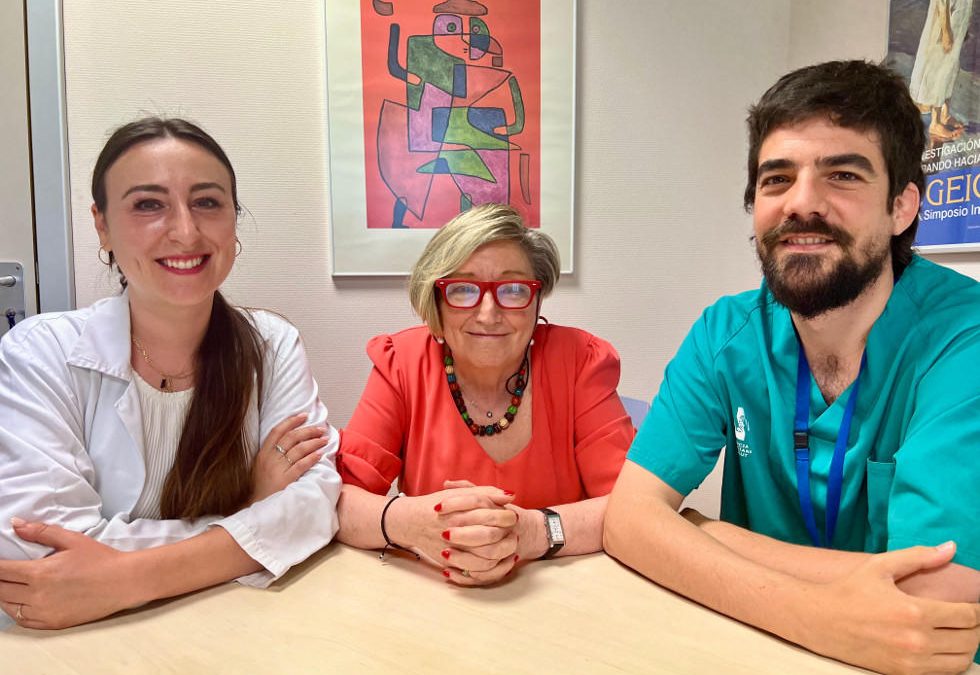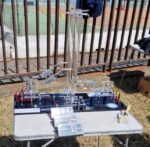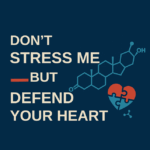Dr. Juan Miguel Cejalvo -researcher of the Breast Cancer Biology Research Group of the INCLIVA Health Research Institute of the Hospital Clínico de València, directed by Dr. Ana Lluch, and researcher member of CIBERONC-, has led a study in which a protein -called AXL- has been identified as a possible factor of resistance to HER2+ breast cancer treatments and has studied how its pharmacological inhibition can reverse this situation and increase the response to therapy.
The results of the research are included in the article ‘Targeting HER2-AXL heterodimerization to overcome resistance to HER2 blockade in breast cancer’, recently published in Science Advances, whose first author is Dr. Anna Adam-Artigues, a researcher from the same INCLIVA research group who has obtained a Predoctoral Grant from the Spanish Association Against Cancer in Valencia.
The research has shown that AXL plays an important role in resistance to anti-HER2 therapy in HER2+ breast cancer, as it is a membrane receptor involved in multiple biological processes essential for the development of metastasis. This work has confirmed at the cellular level that AXL binding to HER2 leads to resistance to anti-HER2 therapy such as trastuzumab and pertuzumab, allowing cells to develop metastasis. In addition, it has been shown that patients with high levels of HER2 expression are at increased risk of relapse.
The most important aspect of the study is that it has shown not only that AXL is a poor prognostic factor, but also that it has become a predictive factor for response. In other words, pharmacological inhibition of AXL has managed to reverse resistance to anti-HER2 treatment. In fact, in animal models with patient-derived samples, resistance has been overcome in 100% of cases with complete tumour resolution and excellent tolerance (the mice are cured and in good health).
This is very important as it shows the benefit of combining an AXL inhibitor with trastuzumab for resistant disease, which opens the door to a possible solution for patients with poor prognosis.
Breast cancer is the most frequently diagnosed cancer in women worldwide. It is a heterogeneous disease in which the HER2+ subtype accounts for approximately 20% of cases. The increased understanding of HER2+ tumour biology has led to the development of therapies that, in recent decades, have significantly improved the prognosis in both early and advanced stages of the disease. However, despite this progress, around 20%-25% of patients diagnosed with HER2+ breast cancer suffer relapses and metastases, leading to a stage of the disease that is now considered incurable.
For this reason, it is essential to identify new therapeutic targets to combat resistance to anti-HER2 therapy. In this case, we have studied how pharmacological inhibition of this receptor in patients with HER2+ tumours resistant to trastuzumab and pertuzumab (the first-choice treatment) could be an excellent therapeutic strategy and an opportunity to personalise treatments and move towards precision medicine.
This project has been carried out over 5 years with a preclinical and translational development led by Dr. Cejalvo, which has led to the doctoral thesis of Dr. Anna Adam-Artigues that was funded by the Spanish Association Against Cancer in Valencia. It has also had the collaboration of other prestigious research centres, such as Vall d’Hebron Institute of Oncology (VHIO), Hospital Clinic of Barcelona, Hospital del Mar Institute of Medical Research (IMIM-Hospital del Mar), the Jiménez Díaz Foundation and the SOLTI cancer research group.
The final objective is to set up a clinical trial to be able to demonstrate its benefit in patients and to be able to check whether the same promising results obtained with animal models can be achieved.
Source: INCLIVA






